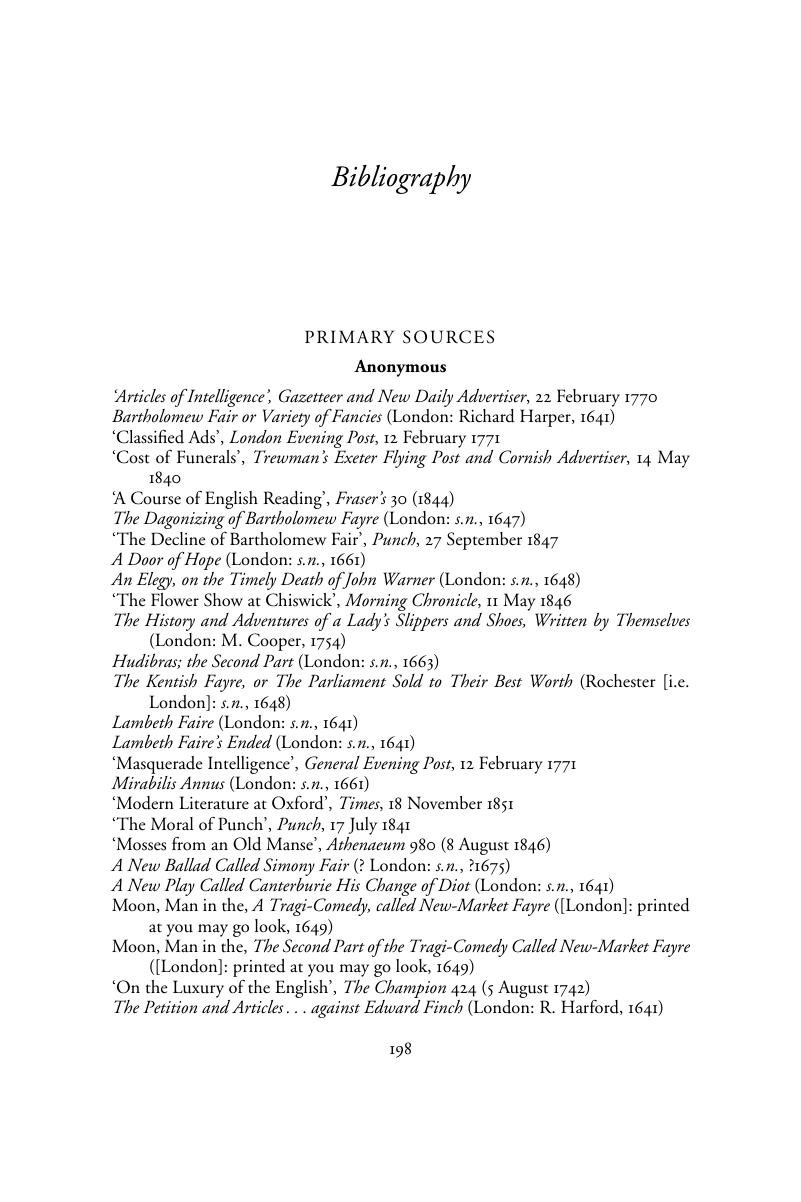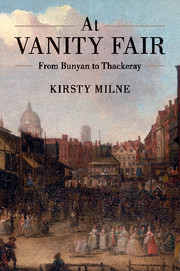Book contents
- At Vanity Fair
- At Vanity Fair
- Copyright page
- Contents
- Illustrations
- Book part
- Glossary
- Introduction
- Chapter 1 ‘Copying from life’
- Chapter 2 ReformingBartholomew Fair
- Chapter3 ‘More moderate now than formerly’
- Chapter 4 ‘Gay ideas of Vanity-Fair’
- Chapter 5 ‘Manager of the Performance’
- Conclusion
- Afterword
- Book part
- Notes
- Bibliography
- Index
- References
Bibliography
Published online by Cambridge University Press: 05 May 2015
- At Vanity Fair
- At Vanity Fair
- Copyright page
- Contents
- Illustrations
- Book part
- Glossary
- Introduction
- Chapter 1 ‘Copying from life’
- Chapter 2 ReformingBartholomew Fair
- Chapter3 ‘More moderate now than formerly’
- Chapter 4 ‘Gay ideas of Vanity-Fair’
- Chapter 5 ‘Manager of the Performance’
- Conclusion
- Afterword
- Book part
- Notes
- Bibliography
- Index
- References
Summary

- Type
- Chapter
- Information
- At Vanity FairFrom Bunyan to Thackeray, pp. 198 - 225Publisher: Cambridge University PressPrint publication year: 2015



